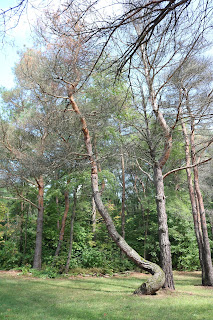Fantasy vs Contemporary

I recently finished a contemporary romance and am now
working on a fantasy. Bothof these books are either part of a series or part of
a trilogy. Been thinking about what happens in my head when I enter these
worlds. What changes?
When writing contemporary stories, I’m familiar with the
world. Much depends on finding a location for the stories but… I generally use
a fictitious town I’ve created. One for each group of stories. I seldom use
places that exist. Once I did and that was Santa Fe
When writing fantasies, the worlds are completely made up. Here
is where creativity and research comes into play. There are features in ancient
civilizations that can be turned into fantasy worlds.
So the difference between the two is working with the
familiar and with the imagined world.
The characters’ names and language are things that can be
different when going between contemporary and fantasy. I try to make the names
sound not of this world but I don’t do what some fantasy writers do and mane
the names of the characters unable to pronounce. With the language, I try to
make things common to the contemporary world easy to identify. Like choca for
cholate and kafa for coffee. My entomology and my foreign dictionary often come
into play here. In some of my fantasies, things exist that don’t occur here
such as bihorns rather like huge horses or dragons.
So slipping from the modern world to the fantasy world means
creating things that are unusual and also familiar to people.



















